How Women Are Reclaiming the Craft Beer Industry
Credit to Author: Niloufar Haidari| Date: Mon, 02 Dec 2019 13:52:42 +0000
If the words "craft beer" conjure up images of bearded dudes with nautical tattoos poking out of their flannel shirts, you're not alone. "Hipster" men (RIP) have managed to position themselves as the figureheads of brewing, but the reality is plenty of women are not only working but also leading the charge in the beer world.
In historical terms, women have been brewing since ancient times. Until the commercialisation of brewing during industrialisation – when women were barred from participating in alcohol production and relegated to roles as barmaids – women were actually the primary brewers in most nations across the world.
But the tide is turning again. Events like International Women's Collaboration Brew Day are normalising the idea that women can and do work in the brewhouse, and at the end of November independent pub and brewing business Laine Brew Company unveiled a new apprenticeship scheme, alongside US brewer Megan Stone, that seeks to attract and inspire budding brewers from diverse backgrounds.
"I didn't think anything of [being a woman] when I first got into the industry. It was others that made me realise I was different," the purple-haired brewer – and owner of popular Instagram account @isbeeracarb – tells me in a break from her jam-packed schedule. "My hope with this scheme is that the brewing industry becomes much more approachable to minorities. I hope other breweries see what we are doing and start to make some changes that makes their own spaces much more inclusive."
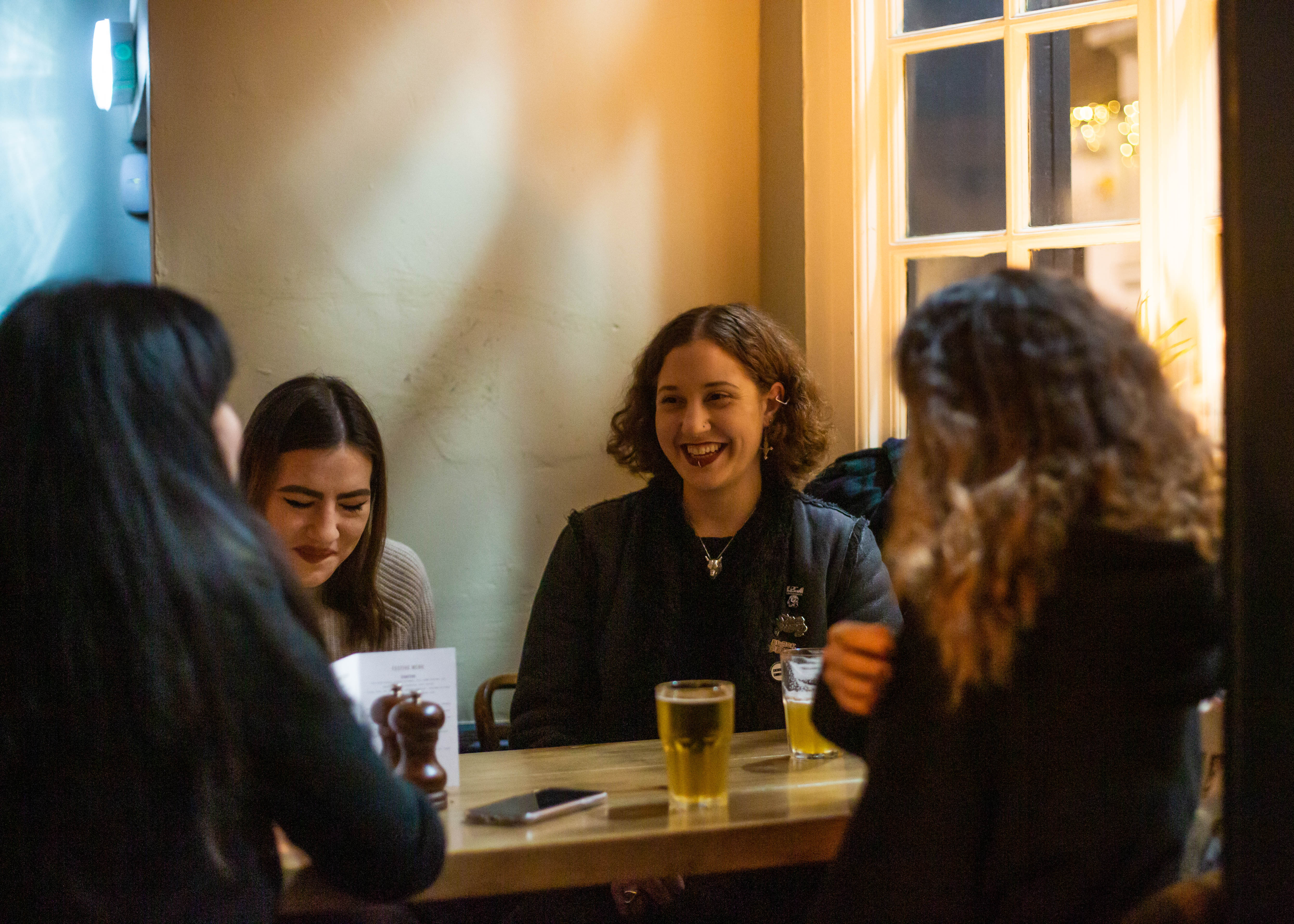
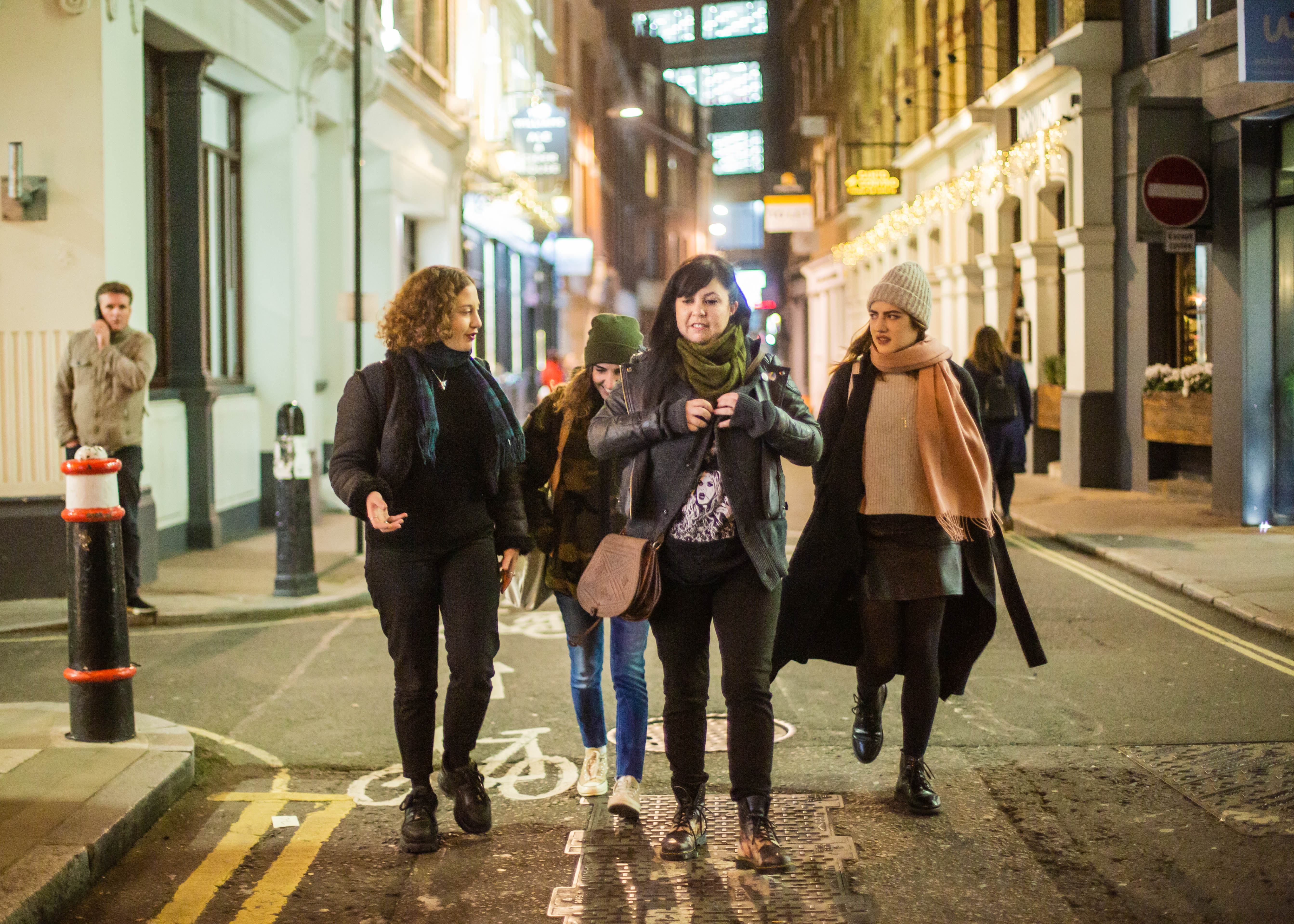
To celebrate the launch of the scheme and find out more about what it's like being a woman in beer, I went on a craft beer bar crawl with three women working in London's beer scene: Natasha Wolf, who runs the Crafty Beer Girls group, as well as being accounts manager at Beatnickz Republic Brewing Co.; Tida Bradshaw, an illustrator and designer who has worked in the industry for seven years and can currently be found creating strikingly beautiful labels at Affinity Beers; and Jessica O'Neill, a beer tour guide and the mysterious presence, often assumed to be a man, behind the well-liked @londoncraftbeer Instagram account.
Our first stop is The Williams Ale & Cider House on Artillery Lane, a cosy historic city pub that – although owned by Greene King – has an impressive range of independent craft beer on tap. All three women opt for "Hepcat" from Gipsy Hill Brewing Co., a fruity session IPA, while I abstain because… I do not like craft beer.
The girls are undeterred by my dirty secret, and vow to find me something I like by the end of the night. I am quietly sceptical, but agree to be taken under their wing.
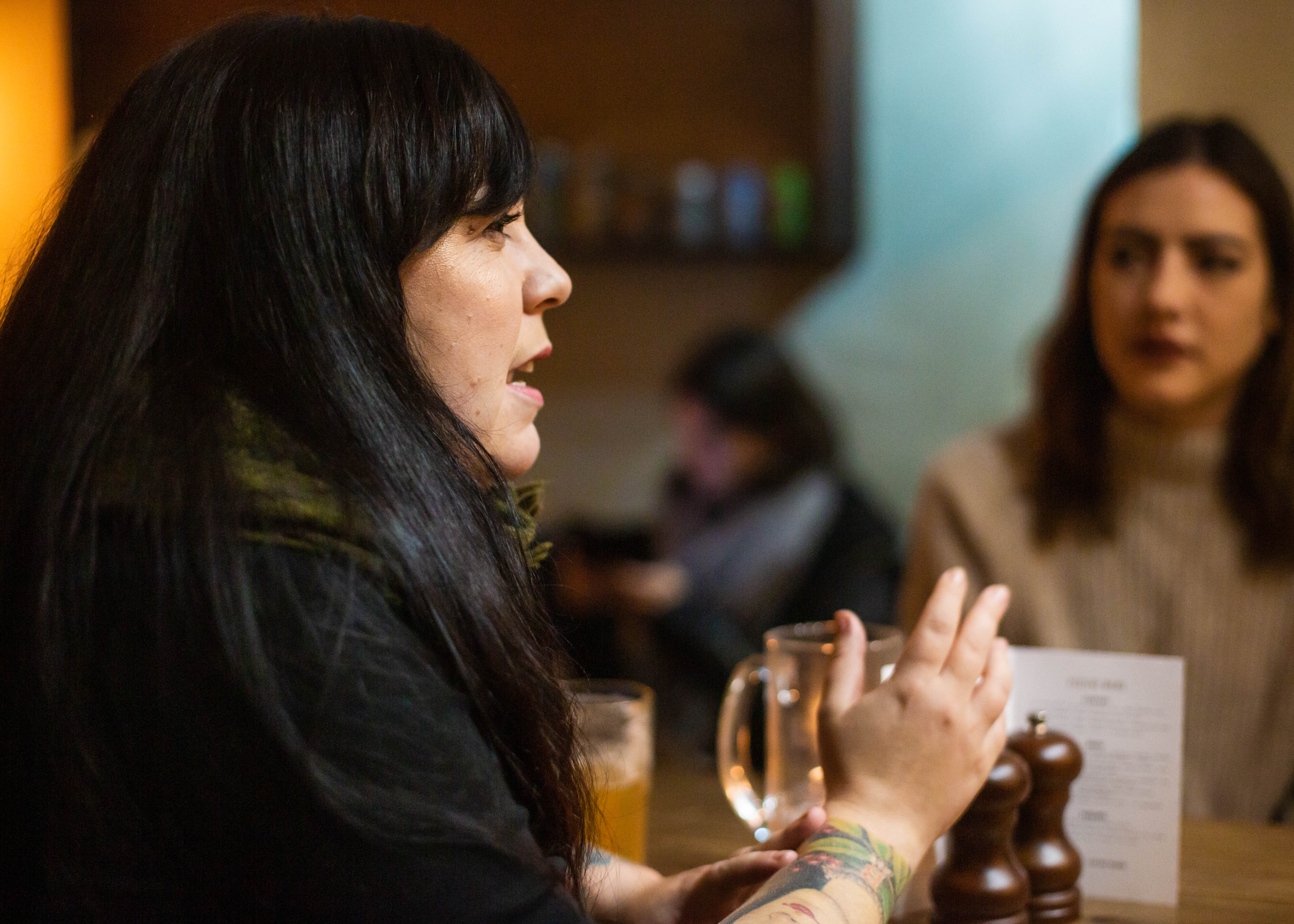
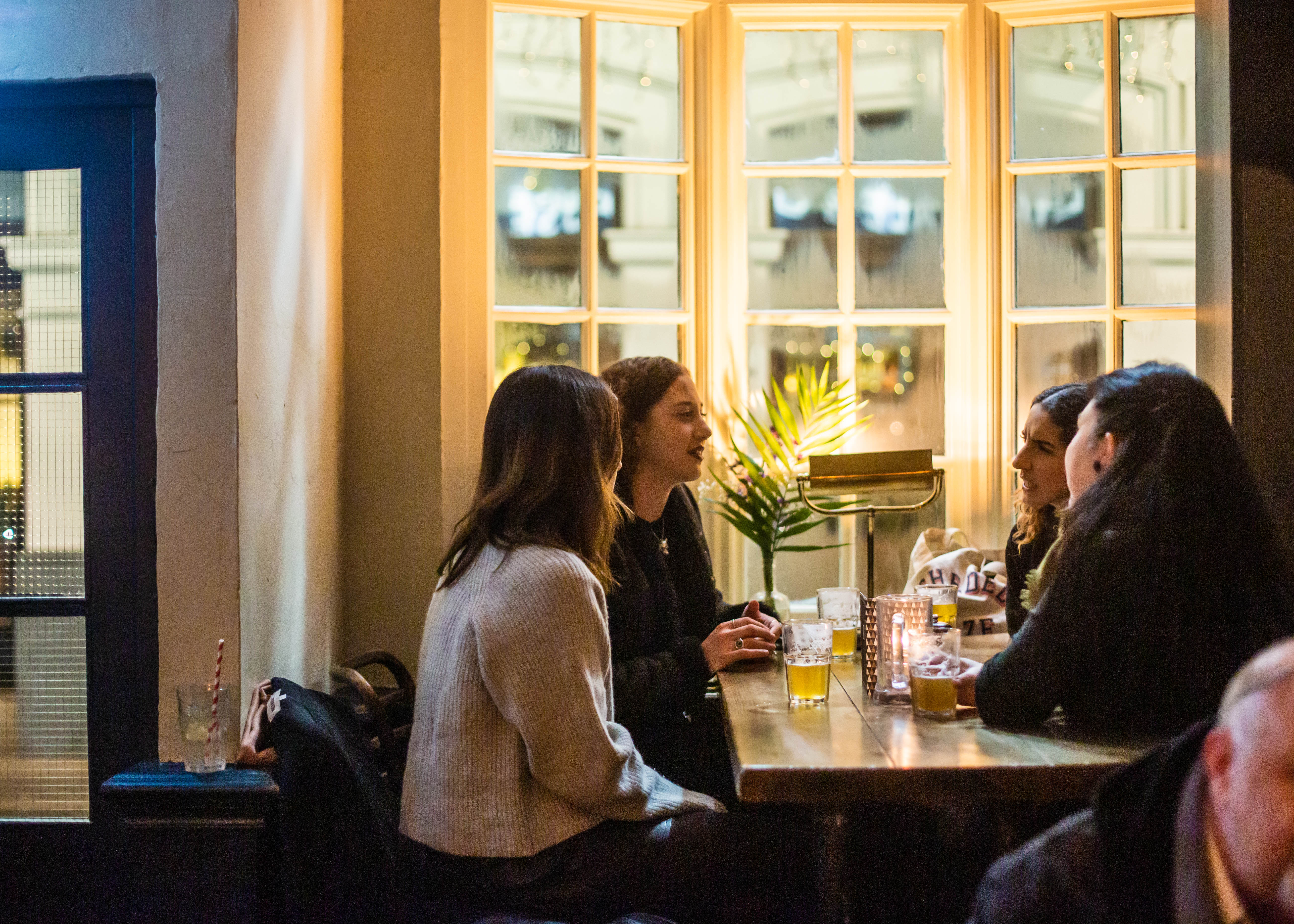
"I thought I hated beer, because I thought beer was just lager," Natasha admits. She fell into the beer industry a few years ago, after dropping out of academia to work in hospitality, and the rest was "a natural, organic progression". Beer culture and the drink itself are still seen as overwhelmingly masculine, their space in the public imagination tied to images of angry groups of men downing pints of lager and shouting at each other.
Why has this stereotype persisted?
"Marketing is the simple answer to that: for 50-plus years, beer has been advertised mostly to men," award-winning beer writer Melissa Cole – who first fell in love with craft beer at university while working at a real ale pub – explains over email. But things are changing: "The new generation of craft brewers just want people to enjoy their brews, whoever they are, and that's a really positive thing. Long may it continue and, more importantly, extend to a more racially diverse set of drinkers and embrace the LGBTQ+ community more."
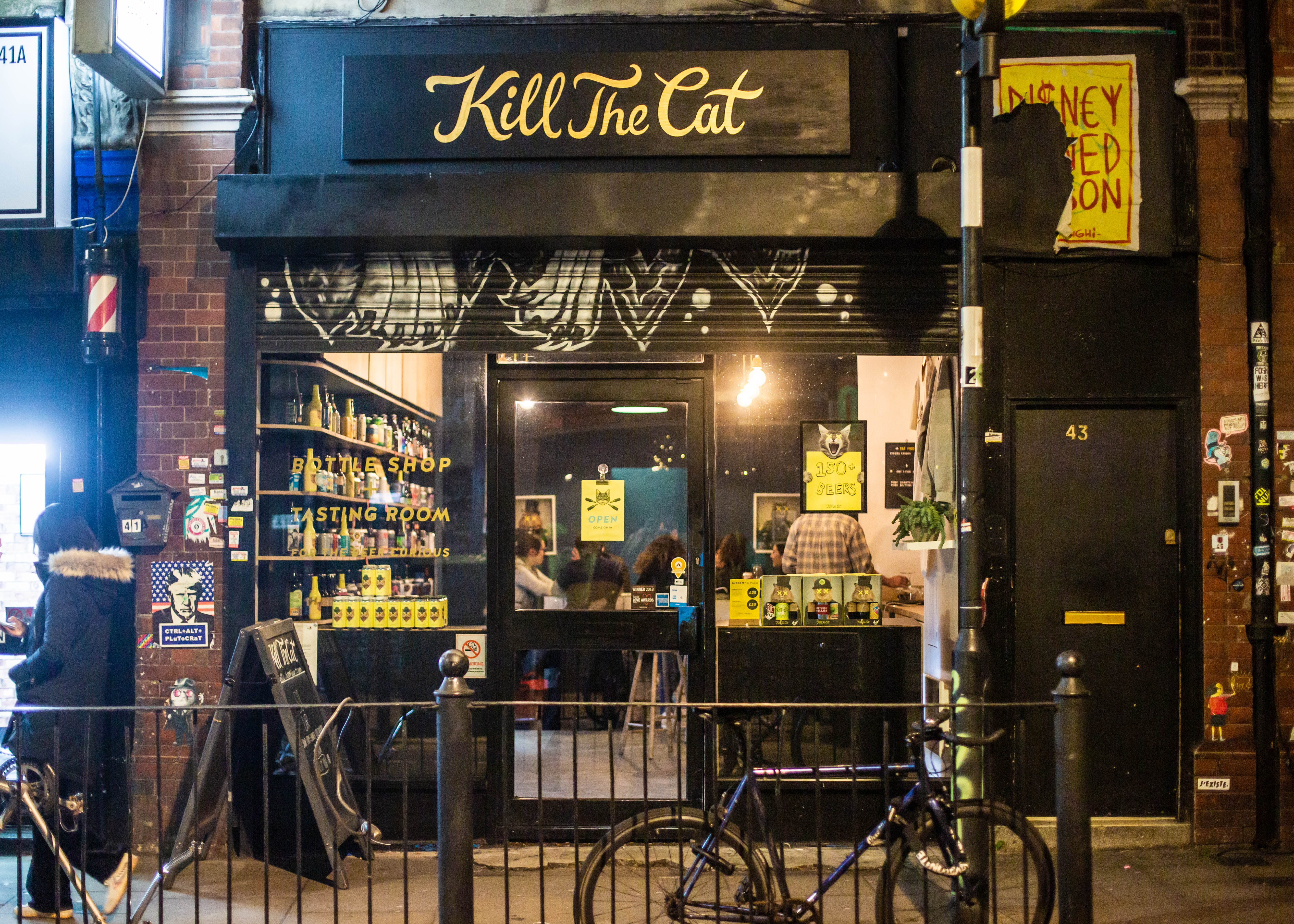
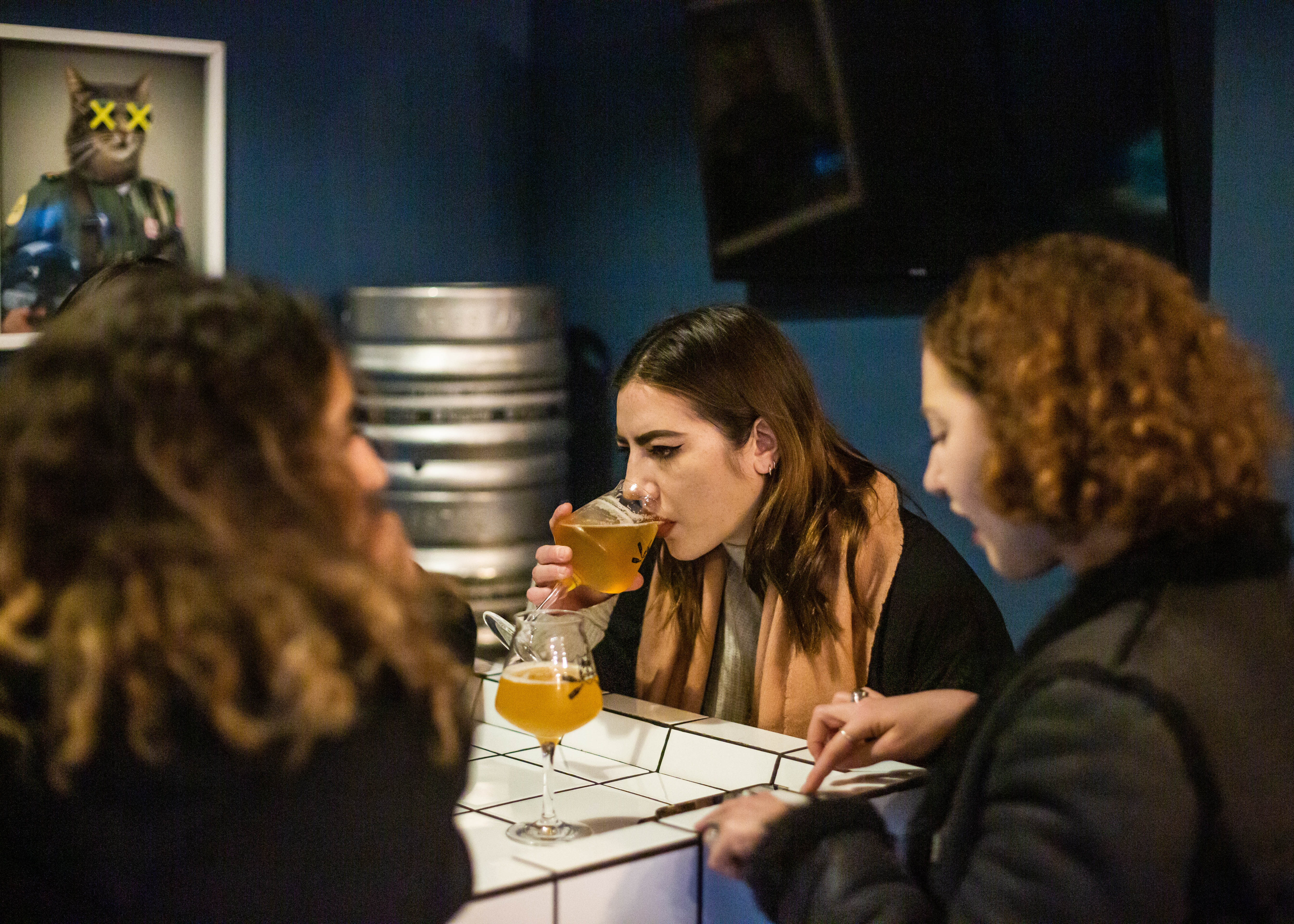
We move on to the next place on our beer trail: Kill The Cat, a bottle shop on Brick Lane with a repurposed morgue table at the back where customers can sit and drink. Jessica mentions that, in her hometown of Vancouver, pubs aren't accessible to some women, by virtue of them not allowing children and dogs – but they are allowed in breweries.
"I think a lot of women in North America got into craft beer that way – the moms who maybe wouldn't feel comfortable at the sports bar or the pub are now in the brewery drinking hardcore IPAs after trying a raspberry ale or whatever," she chuckles.
The beer world, much like the wider world, can be unfriendly towards women. All five women I speak to for this piece mention discriminatory behaviour they have faced in the industry, simply because they are female: being talked down to by condescending men in craft beer shops and bars, having to fight to get a sanitary bin put in the workplace, not having their opinions taken seriously, being paid lower wages than less-experienced male workers, having their ability and knowledge questioned, and even being verbally and physically assaulted. Despite all this, there is hope that the industry is changing for the better.
"I think with the amount of new breweries that have popped up in the last ten years, the amount of jobs provided by sheer volume means that there are more women working in the beer world," notes Tida. She's wary of feeding into stereotypes about women naturally being more kind and patient than men, but believes women have brought a greater element of care to the beer world.
"I've been working in the tap room at Affinity on Saturdays, and I feel like more women are feeling confident to come in and try stuff," she says. "If anyone comes into the bar and doesn't know anything about craft beer, there's sometimes the tendency for men to be a bit snooty or snobbish, but I think the women I work with have been more open and patient and kind to people, and more willing to let people try things and discover what they like, rather than looking down on them."
This, in turn, makes more women feel comfortable about their blossoming interest in the traditionally male drink.
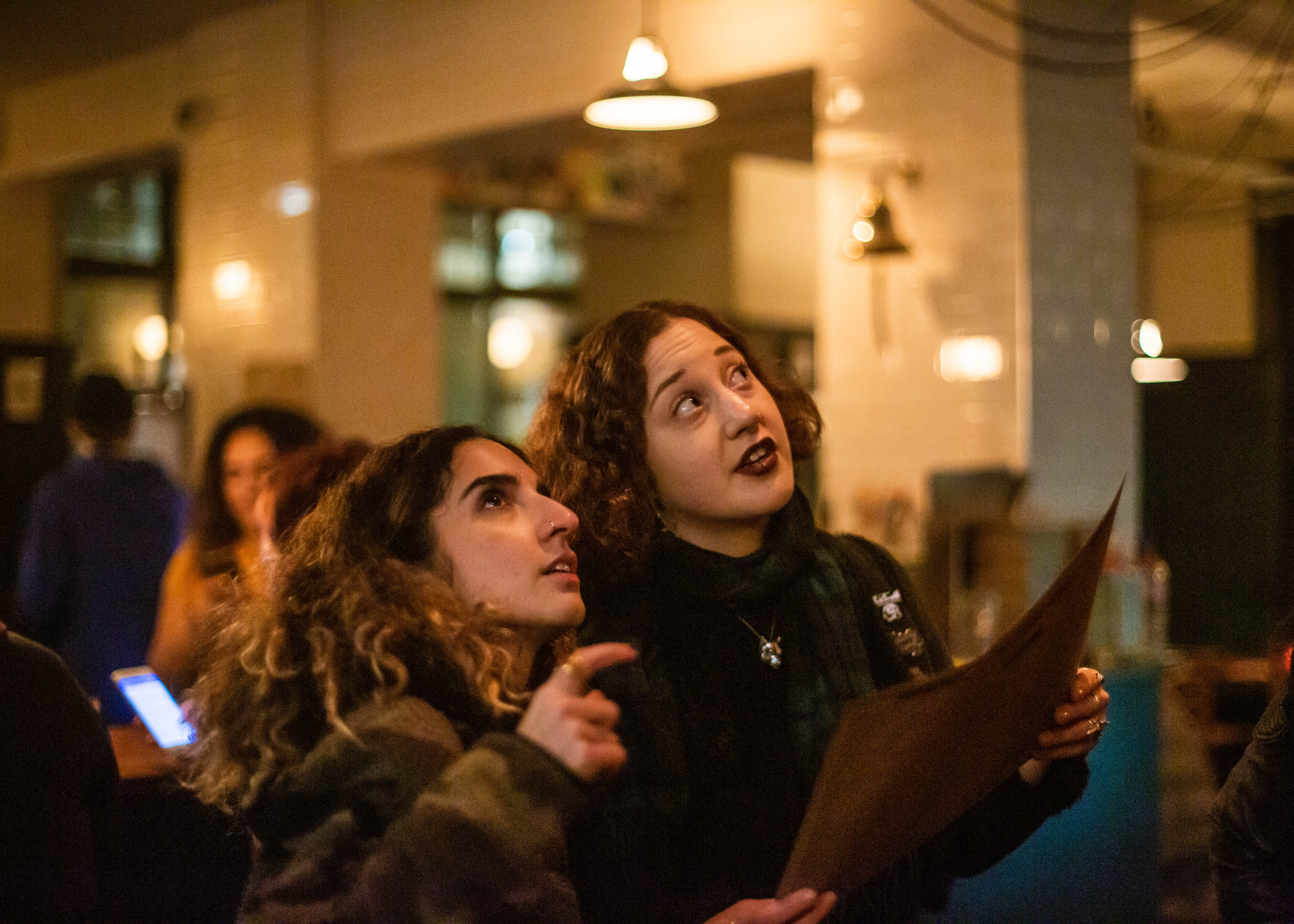
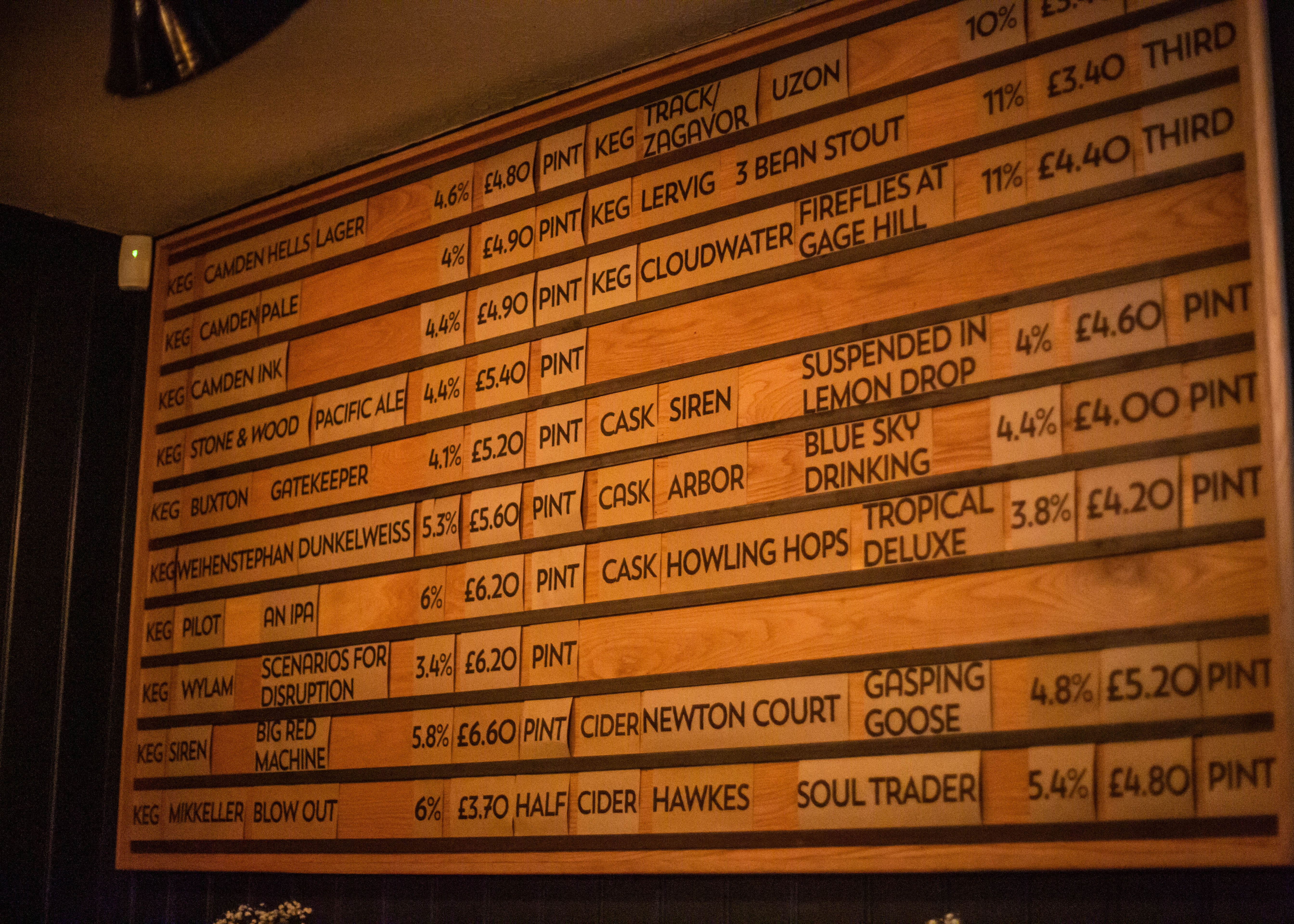
"Having a beer brings people together, so the idea that people are putting walls up with sexist branding or behaviour is to me the complete opposite of what beer is," says Natasha. "Craft beer is a mixture of liquid science and liquid art. People are really putting a lot of work into it."
Bolstered by this positive, inclusive approach to beer, we head to our final drinking hole of the night – The King’s Arms on Buckfast Street – and I agree to let the girls pick me out a drink.
"The best way to give someone a good cocktail is to find out what flavours they like, and go from there. It's the same with beer," says Natasha. After asking me a couple of questions about what I usually drink and my taste preferences, they confer together and decide on "Uzon" – a triple-fruited imperial gose brewed by Track Brewing Company in collaboration with Zagovor Brewey. Sour, juicy and with a nice salty fizz, it is surprisingly delicious, and I start to wonder if I might be a little more adventurous with my order next time I'm at the pub. All three women are visibly delighted by this turn of events.
"We're not stealing beer from the men," says Natasha. "We're taking it back."
This article originally appeared on VICE UK.